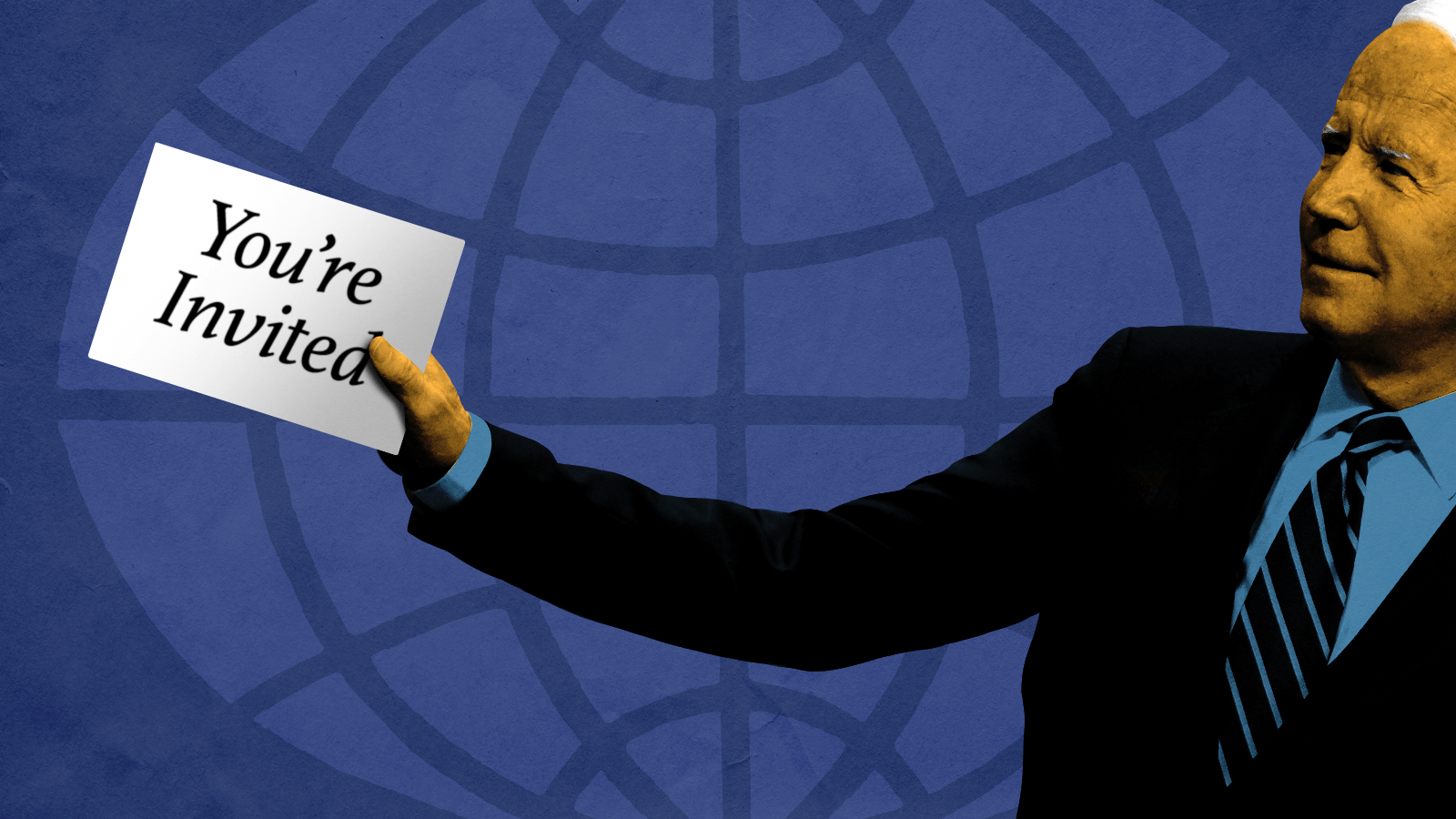The anachronistic vision behind Biden's Summit for Democracy


A free daily email with the biggest news stories of the day – and the best features from TheWeek.com
You are now subscribed
Your newsletter sign-up was successful
A month from now, President Biden will convene what his administration has dubbed a "Summit for Democracy," an event intended both to bolster democratic governments against ascendent authoritarianism and to demonstrate the United States remains the leader of the free world. Unfortunately, a leaked list of countries invited to attend the event suggests the vision behind it is fatally flawed.
The idea that foreign affairs should be conceived in terms of a conflict between regime types traces back to the Cold War, when the primary geopolitical tension had a real ideological dimension. Liberal democracies lined up against communist dictatorships, with each side seeking to advance its interests in part by spreading its governance and economic systems as widely as possible around the globe. Biden is clearly harking back to this kind of alignment by inviting representatives of democracies to discuss ways to fight the authoritarian threat posed by China, Russia, and other rivals and opponents.
Yet the leaked list raises serious questions. Poland, which many allege has been backsliding on democracy in recent years, will supposedly be there, but Hungary apparently won't be, though Viktor Orban's Fidesz Party may well lose power in an election next year. In the Middle East, Israel and Iraq have been invited, but Turkey, a NATO ally, hasn't. Firmly democratic allies in Asia, such as Japan and South Korea, have been included. But so has the Philippines, where democracy is under threat, while other countries struggling with democratic consolidation, like Thailand and Vietnam, haven't been asked to come.
The Week
Escape your echo chamber. Get the facts behind the news, plus analysis from multiple perspectives.

Sign up for The Week's Free Newsletters
From our morning news briefing to a weekly Good News Newsletter, get the best of The Week delivered directly to your inbox.
From our morning news briefing to a weekly Good News Newsletter, get the best of The Week delivered directly to your inbox.
But worse than the lack of clarity about membership in the democratic club is the summit's anachronistic vision of international relations. Tensions are indeed rising between the U.S. and China, but that's not primarily because the former is a democracy and the latter is authoritarian. It's because America is a global hegemon that projects power into China's near abroad, and China is a rapidly rising power seeking to expand its influence across East Asia. That places the two countries on a collision course, and whether they'll prove able to avoid armed conflict will have very little to do either country's form of government.
The fact is democracies sometimes have mutual interests, but not always — and often countries with different regime types can find ways to get along or at least avoid open conflict. To the extent that the Biden administration's Summit for Democracy actively obscures these complicated truths, it runs a serious risk of doing more harm than good.
A free daily email with the biggest news stories of the day – and the best features from TheWeek.com
Damon Linker is a senior correspondent at TheWeek.com. He is also a former contributing editor at The New Republic and the author of The Theocons and The Religious Test.
-
 How to Get to Heaven from Belfast: a ‘highly entertaining ride’
How to Get to Heaven from Belfast: a ‘highly entertaining ride’The Week Recommends Mystery-comedy from the creator of Derry Girls should be ‘your new binge-watch’
-
 The 8 best TV shows of the 1960s
The 8 best TV shows of the 1960sThe standout shows of this decade take viewers from outer space to the Wild West
-
 Microdramas are booming
Microdramas are boomingUnder the radar Scroll to watch a whole movie
-
 Big-time money squabbles: the conflict over California’s proposed billionaire tax
Big-time money squabbles: the conflict over California’s proposed billionaire taxTalking Points Californians worth more than $1.1 billion would pay a one-time 5% tax
-
 Did Alex Pretti’s killing open a GOP rift on guns?
Did Alex Pretti’s killing open a GOP rift on guns?Talking Points Second Amendment groups push back on the White House narrative
-
 Washington grapples with ICE’s growing footprint — and future
Washington grapples with ICE’s growing footprint — and futureTALKING POINTS The deadly provocations of federal officers in Minnesota have put ICE back in the national spotlight
-
 Trump’s Greenland ambitions push NATO to the edge
Trump’s Greenland ambitions push NATO to the edgeTalking Points The military alliance is facing its worst-ever crisis
-
 Why is Trump threatening defense firms?
Why is Trump threatening defense firms?Talking Points CEO pay and stock buybacks will be restricted
-
 The billionaires’ wealth tax: a catastrophe for California?
The billionaires’ wealth tax: a catastrophe for California?Talking Point Peter Thiel and Larry Page preparing to change state residency
-
 Trump considers giving Ukraine a security guarantee
Trump considers giving Ukraine a security guaranteeTalking Points Zelenskyy says it is a requirement for peace. Will Putin go along?
-
 Bari Weiss’ ‘60 Minutes’ scandal is about more than one report
Bari Weiss’ ‘60 Minutes’ scandal is about more than one reportIN THE SPOTLIGHT By blocking an approved segment on a controversial prison holding US deportees in El Salvador, the editor-in-chief of CBS News has become the main story
